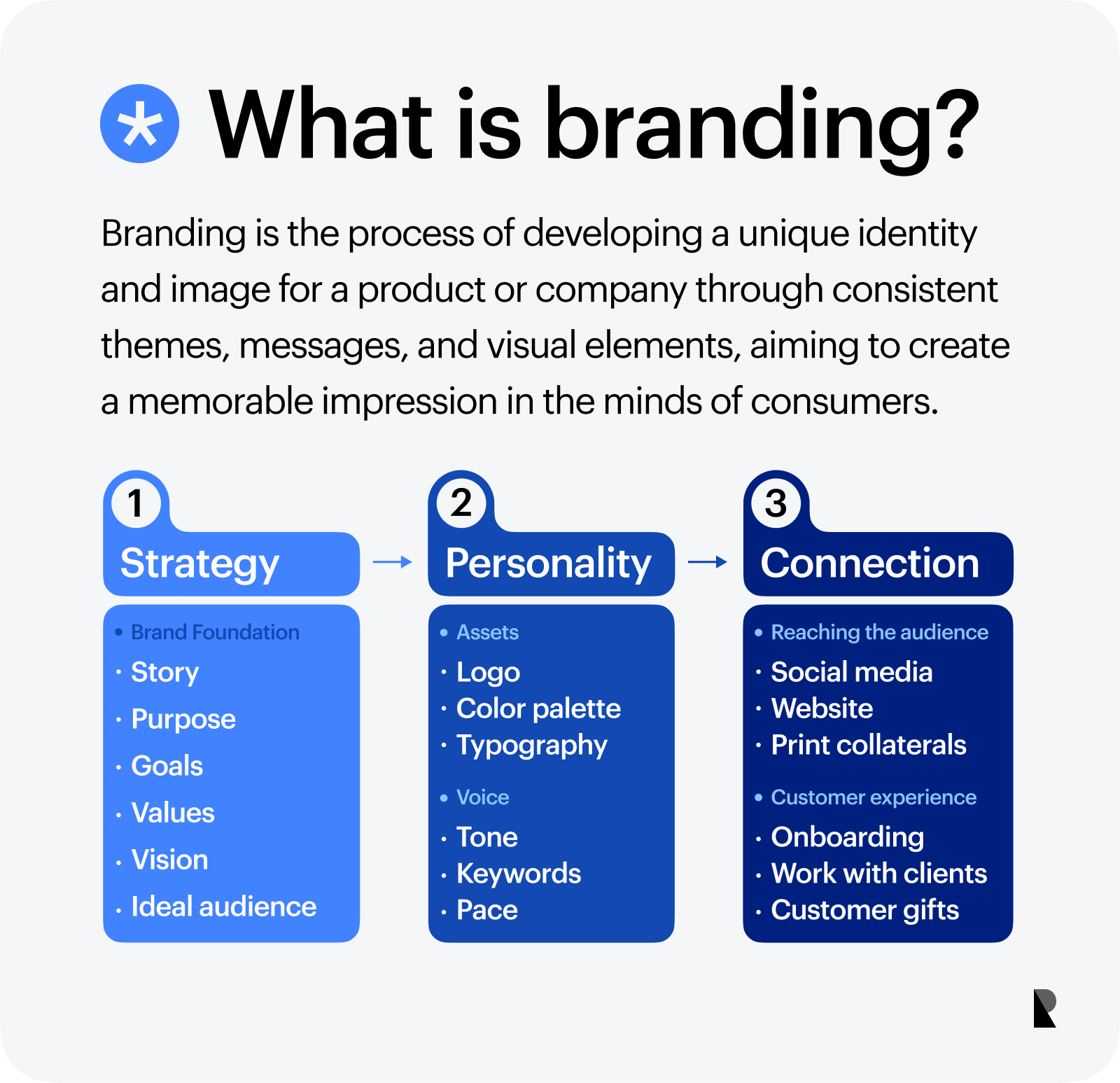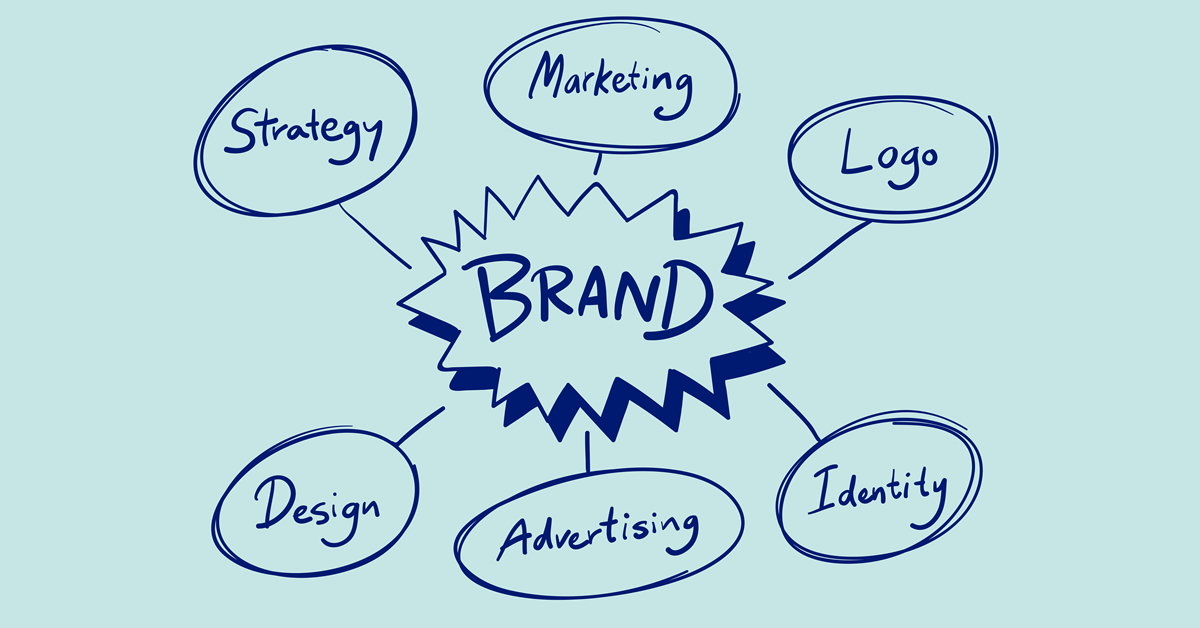Structure Strong Customer Relationships Via Robust Branding
Structure Strong Customer Relationships Via Robust Branding
Blog Article
Why Durable Branding Is Vital for Market Leadership
In today's affordable landscape, durable branding emerges as an important part for attaining market management. A well-defined brand name identification not only sets a business apart from its rivals yet additionally cultivates trust fund and psychological links with customers. These elements are essential for promoting commitment and motivating repeat company, yet several organizations ignore the deeper implications of their branding approaches. As we check out the complex nature of branding, it ends up being evident that the risks are high for those that fail to acknowledge its importance in shaping long-term organization success. What are the particular techniques that can boost a brand to this esteemed condition?
Understanding Brand Identity
Constantly recognizing the significance of brand identification is critical for any type of organization striving to accomplish market leadership. Brand identification incorporates the visual elements, messaging, and overall perception that distinguish a firm from its rivals. It functions as a structure for exactly how customers regard and interact with a brand name, playing a crucial duty in shaping their expectations and experiences.
A well-defined brand identity communicates the core worths and goal of an organization, producing a psychological link with its target audience. Components such as logo designs, color pattern, typography, and intonation need to straighten cohesively to communicate a regular message across all platforms. This consistency enhances brand recognition and fosters customer commitment.
Moreover, brand identity is not merely superficial; it shows the authenticity and stability of a company. It should be thoroughly crafted to resonate with the designated audience while remaining versatile to advancing market trends. Organizations that prioritize a solid brand name identification can efficiently distinguish themselves, build a favorable credibility, and grow a devoted customer base. Ultimately, a durable brand name identity is necessary for navigating competitive landscapes and sustaining long-term success.
Building Consumer Depend On
A solid brand identity lays the groundwork for constructing consumer trust fund, a crucial component in attaining market leadership. Trust is not simply an emotional action; it is a critical asset that can considerably influence purchasing decisions and brand name loyalty. Business that grow openness, integrity, and consistency in their messaging and activities promote a sense of security amongst customers.
To develop this trust fund, brand names must supply on their promises. This indicates making certain that product high quality fulfills customer assumptions and that solution experiences are favorable and responsive. Consistent communication reinforces integrity; when clients know what to expect and that their worries will be attended to, their confidence in the brand name strengthens.
Social proof additionally plays a critical duty in establishing count on. Positive reviews, endorsements, and recommendations from credible sources improve a brand name's online reputation and can sway prospective customers. Engaging with customers via social platforms and addressing their issues openly demonstrates accountability and commitment.
Distinction in Open Markets
In today's congested industry, distinction is important for brand names seeking to stand apart and record customer interest. With countless options readily available, consumers are usually overloaded, making it important for brands to establish a special identification that reverberates with their target market. This distinction can materialize through various components, consisting of product features, pricing strategies, client service, and brand messaging.
Effective differentiation entails not only identifying what makes a brand name unique but additionally interacting these differences plainly and continually. Brand names must articulate their worth proposition in such a way that addresses certain customer demands and choices. For example, a company might focus on sustainability, innovative modern technology, or personalized consumer experiences to sculpt out a particular niche in a competitive landscape.
Additionally, brands should consistently examine their affordable setting to adjust and refine their differentiation techniques. This proactive method guarantees that they continue to be appealing and appropriate to consumers as market dynamics develop. Inevitably, robust branding that emphasizes distinction not just cultivates brand name loyalty yet additionally places a company as a leader in its market, leading the means for continual growth and market dominance.
Psychological Connections With Consumers
Emotional connections function as an effective catalyst in structure enduring relationships in between consumers and brands. When consumers resonate with a brand name on an emotional degree, it cultivates commitment that goes beyond mere transactional interactions. Brand names that successfully stimulate emotions-- whether through narration, shared worths, or authentic engagement-- develop a sense of belonging for their clients.
These emotional ties can considerably influence acquiring decisions, as customers are commonly driven by feelings instead than logic. A brand that aligns with consumers' addresses or goals their discomfort points can cultivate a deep-rooted loyalty that results in repeat service and favorable word-of-mouth references.
In addition, psychological branding permits firms to differentiate themselves in crowded markets. By taking advantage of the views of their target market, brands can take a special identification that reverberates deeply, making them unforgettable and favored over competitors.
In an age where customers are pestered with options, a strong psychological connection can be the choosing consider brand preference. Hence, focusing on psychological engagement is not just a marketing strategy; it is a tactical vital for brands seeking to establish purposeful relationships and improve this hyperlink customer retention.
Long-Term Organization Success
Lasting company growth hinges on Our site the capability to cultivate durable branding techniques that resonate with customers gradually. A solid brand not just separates a firm from its rivals but also promotes commitment and trust among customers. This long-term partnership is important for making sure repeat service, which dramatically contributes to income security and development.
In an increasingly affordable market, brands that connect a clear and consistent message are much more most likely to prosper. This consistency strengthens brand identification, making it less complicated for consumers to remember and pick the brand over others. Robust Branding. As an outcome, a reputable brand can adjust to market modifications without shedding its core significance, enabling technology without pushing away faithful consumers
Moreover, robust branding creates a platform for customer involvement, where services can gather comments and adjust their offerings appropriately. This repetitive process not only enhances consumer contentment but additionally constructs a neighborhood around the brand, fostering a feeling of belonging.
Final Thought

Organizations that prioritize a strong brand name identification can successfully differentiate Our site themselves, construct a favorable online reputation, and grow a loyal consumer base.A solid brand name identity lays the foundation for constructing client count on, a vital element in accomplishing market management. A strong brand name not only differentiates a company from its rivals but additionally fosters loyalty and trust fund amongst consumers. As a result, a reputable brand name can adjust to market modifications without shedding its core significance, permitting for development without pushing away devoted consumers.

Report this page